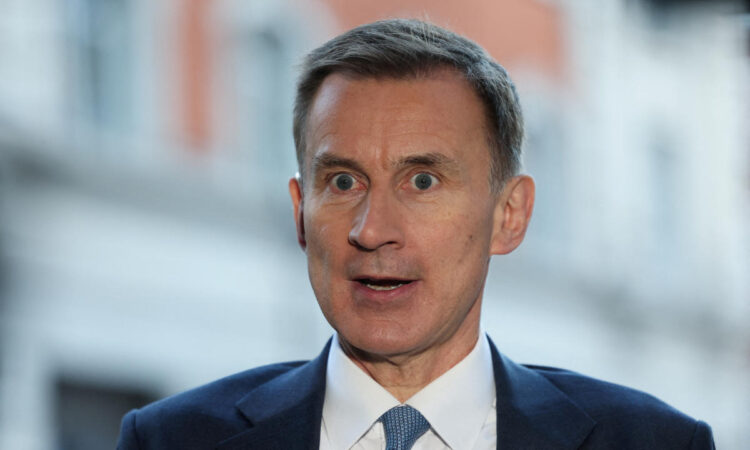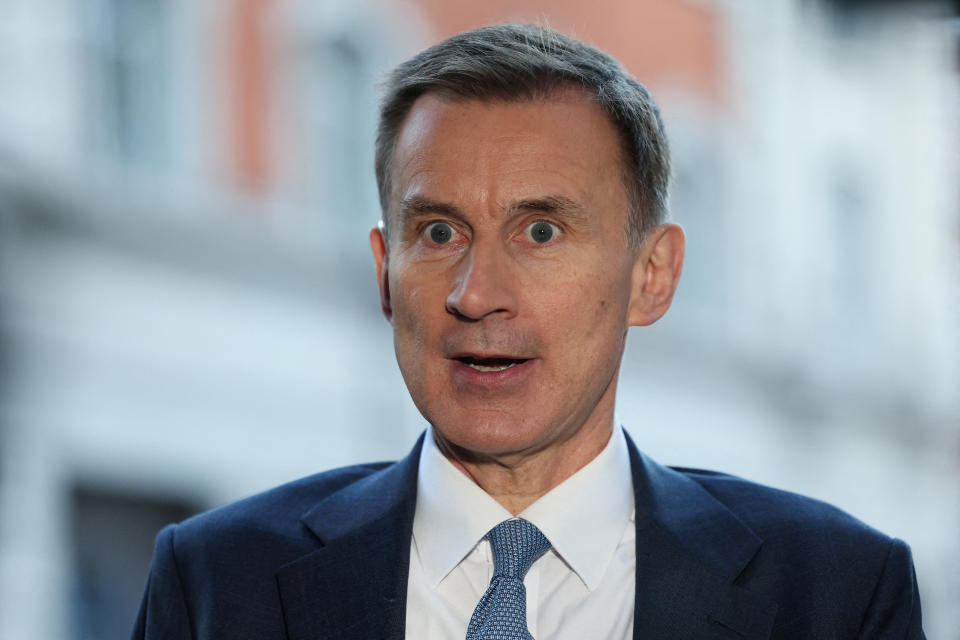

The prospect of a recession loomed large over the UK on Friday morning as revised data from the third quarter (Q3) revealed that the economy shrank in the three months to the end of September.
The Office for National Statistics (ONS) scaled back expectations, saying that UK gross domestic product (GDP) fell by 0.1% in Q3, down from the previous estimate of no growth.
The downgrade is because the UK services sector is now estimated to have fallen by 0.2% in the third quarter of 2023, revised down from a first estimate fall of 0.1%.
Additionally, GDP is now estimated to have flatlined in the second quarter, revised down from the previous estimate of +0.2% growth.
If the economy contracts in the current quarter — finishing at the end of December — it will mean the UK is in a technical recession.
“The medium-term outlook for the UK economy is far more optimistic than these numbers suggest,” said chancellor Jeremy Hunt.
“We’ve seen inflation fall again this week, and the OBR expects the measures in the Autumn Statement, including the largest business tax cut in modern British history and tax cuts for 29 million working people, will deliver the largest boost to potential growth on record.”
Read more: What is a recession and what does it mean for me?
Indeed, the news came after figures earlier in the week which showed inflation is cooling at a faster clip than expected. The fall to 3.9% took it to the lowest annual rate for more than two years.
Transport, recreation and culture, and food and non-alcoholic beverages were the biggest drivers of inflation’s larger than expected fall from 4.6% to 3.9%, according to the ONS.
UK households should feel some relief when going grocery shopping as bread and cakes prices fell between October and November, as did meat, milk, cheese and eggs.
What is a recession?
Usually, when a country’s output is growing, the value of the goods and services it produces — known as its gross domestic product (GDP) — goes up. But during an economic downturn this value falls.
A recession is a period of negative economic growth for two consecutive quarters. It is when GDP drops for two three-month periods in a row, and comes as a sign that the economy is weakening.
The UK has been on watch for a recession since the start of the year, as it has seen flatlining growth balanced with high interest rates and high inflation.
Watch: How does inflation affect interest rates?
Download the Yahoo Finance app, available for Apple and Android.






